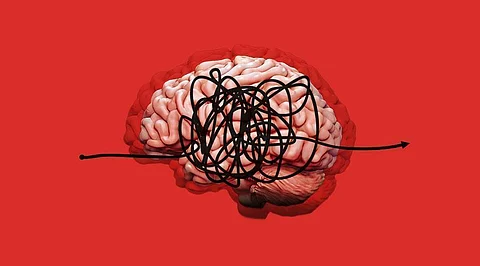

The idea and creation of systems that can carry out activities that ordinarily require human intelligence are referred to as AI. Since the release of Nudge, behavioral science has had an exponentially increasing global impact on all types of enterprises. Technology innovations recently are being incorporated into behavioral science, amplifying its fast-expanding impact in fields like finance and policy. A growing trend in academics and consulting is the use of AI tools to enhance the theories and applications of behavioral science. However, there may be a far stronger interdependence between behavioral science and AI. Though behavioral science is still in its infancy, ideas from it can be incorporated into machine learning algorithms to make what the computer learns relevant to human behavior.
Although we are still decades away from creating machines that can truly understand human beings, our forecasts will become more exact as our databases grow larger, more accurate, and more frequently used. Personal profiling is a term used to describe techniques in behavioral science and sales that are based on certain individual traits. By getting to know us, these algorithms may be able to recognize what is best for us and utilize that knowledge to guide us away from easily avoidable mistakes.
There are already many positive examples, including personalized medicine, smart toilets that can detect cancer, and selfies that can identify cardiac conditions. Even more, Professor Chris Toumazou of Imperial College London pioneered the discipline of nudgeomics and helped develop DnaNudge. While you are out grocery shopping, the company's DnaBand uses the data from your DNA to assist you in finding the healthiest things for your body and encourages you to get more exercise if you have been too inactive.
According to Dan Ariely, people are actually pretty irrational—and this is predictable. As a result, an AI system that is wholly incapable of understanding emotions runs the risk of being wrong, if not hazardous. Leading firms in the field of technology that can read and use data about human emotions include Affectiva and Empatica. The potential to give robot caregivers more human-like sensitivity is an interesting but relevant point given that it appears that robots will soon be a common sight in retirement communities. Applications for emotion-reading systems range from cars that sense what's happening inside the cabin to glasses that help autistic children connect with their parents. These illustrations show how behavioral science knowledge might be applied to further adapt AI to meet our needs.
Though behavioral science aids in efforts to make AI more human, its true potential to help direct the development of AI has been largely underappreciated, maybe inadvertently. According to researcher and businesswoman Nurit Nobel, "These algorithms are designed to facilitate human choice. Given this, it is astonishing to learn how little study of human behavior is typically done when designing them. More effectively utilizing behavioral science findings than they already do could increase the effectiveness of AI technologies in successfully directing decision-makers. We could utilize this to help us develop AI while overcoming human limits, for instance. After all, the individuals who create all these wonderful advancements in AI are still… people! Unconscious biases can influence the development of AI, sometimes leading to detrimental outcomes, such as employment tools that discriminate against women or racial image recognition algorithms. Behavioral science can help us avoid introducing the same unreliable biases that influence us into software by increasing our awareness of our flaws.
Many academics are turning to explainability, a hot topic in AI ethics, to overcome these ethical problems. The notion is that model-building engineers should be able to explain how conclusions are arrived at. By addressing the behavioral elements at play, explainability would, first, increase user trust and, second, enable us to enhance our rules by revealing fresh information from strategies that have previously been shown to be effective in practice. Most importantly, it might offer a level of scrutiny for legitimate use.
Join our WhatsApp Channel to get the latest news, exclusives and videos on WhatsApp
_____________
Disclaimer: Analytics Insight does not provide financial advice or guidance on cryptocurrencies and stocks. Also note that the cryptocurrencies mentioned/listed on the website could potentially be scams, i.e. designed to induce you to invest financial resources that may be lost forever and not be recoverable once investments are made. This article is provided for informational purposes and does not constitute investment advice. You are responsible for conducting your own research (DYOR) before making any investments. Read more about the financial risks involved here.
